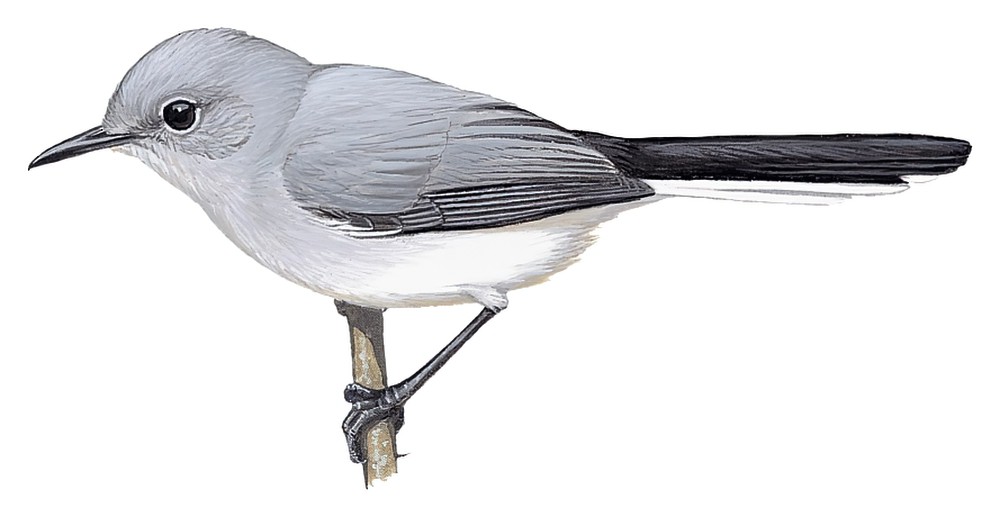Klage’s Gnatcatcher / Polioptila paraensis

Klage's Gnatcatcher
SCI Name:
Protonym: Polioptila paraensis Ann.CarnegieMus.Nat.Hist. 25 p.255
Taxonomy: Passeriformes / Polioptilidae / Polioptila
Taxonomy Code: guigna4
Type Locality: Benevides, Para, Brazil.
Author: Todd
Publish Year: 1937
IUCN Status:
DEFINITIONS
POLIOPTILA
(Polioptilidae; Ϯ Blue-grey Gnatcatcher P. caerulea) Gr. πολιος polios grey; πτιλον ptilon plumage; "The genus Culicivora (as established by Mr. Swainson in the Zoological Journal for 1827) has the Muscicapa stenura of Temminck for its type, but embraces also the Muscicapa cærulea of Wilson and its affines. Now these birds belong in reality to two very different groups; the M. stenura being a Tyrannine, while the M. cærulea can hardly be placed within the limits of that family, but must be arranged either with the old-world Muscicapines (as in Bonaparte's Conspectus) or with the Sylvians (asin Gray's Genera of Birds). Dr. Cabanis in his Ornithologische Notizen, in Wiegmann's Archiv, has rightly separated these two forms, but has unfortunately chosen to call the M. cærulea and its allies Culicivora, and made a new name Hapalura for the M. stenura—the true Culicivora of Swainson. Under these circumstances Hapalura is a mere useless synonym of Culicivora, Sw., and a new name is required for the group containing M. cærulea, and commonly known as Culicivora. I therefore propose for it the term Polioptila, from the general grey colouring of the plumage. The species of this genus that I am at present acquainted with are the following:— 1. POLIOPTILA CÆRULEA (Linn.). ... 2. POLIOPTILA DUMICOLA (Vieill.). ... 3. POLIOPTILA LEUCOGASTRA (Max.). ... 4. POLIOPTILA BILINEATA (Licht.)." (P. Sclater 1855); "Polioptila Sclater, 1855, Proc. Zool. Soc. London, 23, p. 11. Type, by subsequent designation (Baird, 1864, Rev. Amer. Birds, 1, p. 67), Motacilla caerulea Linnaeus." (Paynter in Peters 1964, X, 448).
polioptila / polioptilus
Gr. πολιος polios grey; πτιλον ptilon plumage.
paraensis
Pará State, eastern Brazil.
UPPERCASE: current genus
Uppercase first letter: generic synonym
● and ● See: generic homonyms
lowercase: species and subspecies
●: early names, variants, mispellings
‡: extinct
†: type species
Gr.: ancient Greek
L.: Latin
<: derived from
syn: synonym of
/: separates historical and modern geographic names
ex: based on
TL: type locality
OD: original diagnosis (genus) or original description (species)












